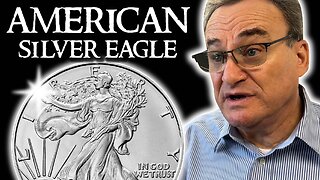Premium Only Content

Episode 1456: Summa Theologica - Part 2 Ethics and Human Action
In this section, Aquinas explores various aspects of human morality and the principles that guide ethical decision-making.
Human Nature and Purpose: Aquinas begins by examining human nature and the ultimate purpose of human life. He argues that human beings are rational creatures with the capacity for moral deliberation. The highest purpose of human life, according to Aquinas, is to attain happiness by aligning one's actions with the divine will.
Virtues and Vices: Aquinas discusses virtues and vices, which are central to his ethical framework. Virtues are habits of good moral character that lead individuals to make morally upright choices. Vices, on the other hand, are habits of immoral behavior. Aquinas identifies cardinal virtues (prudence, justice, fortitude, and temperance) and theological virtues (faith, hope, and charity) as essential for leading a virtuous life.
Law and Morality: Aquinas explores the relationship between law and morality. He distinguishes between eternal law (the divine plan that governs the universe), natural law (moral principles derived from human nature and reason), divine law (revealed through divine revelation, including the Ten Commandments), and human law (legislation enacted by governments). Aquinas argues that human laws must align with the principles of natural and divine law to be morally valid.
Conscience: Aquinas discusses the role of conscience in moral decision-making. He views conscience as the inner voice that guides individuals to make moral judgments based on their understanding of natural law. A well-formed conscience aligns with objective moral principles and leads to morally responsible actions.
Sin and Grace: Aquinas addresses the concept of sin and the role of divine grace in the moral life. Sin is seen as a deviation from the moral order, and Aquinas categorizes sin into venial (less serious) and mortal (grave) sins. Divine grace is considered essential for overcoming sin and growing in virtue.
Moral Principles and Practical Wisdom: Aquinas emphasizes the importance of practical wisdom (prudence) in applying moral principles to specific situations. He discusses the process of moral decision-making, which involves the use of reason to determine the right course of action in light of natural and divine law.
Theological Virtues: Aquinas elaborates on the three theological virtues: faith, hope, and charity (or love). These virtues are infused by God and enable individuals to relate to God in a special way. Faith involves believing in God's revelation, hope is the trust in God's promises, and charity is the love of God and neighbor.
Moral Life and Happiness: Throughout Part II, Aquinas continually connects ethical behavior to human happiness. He argues that true happiness is found in the virtuous life, where individuals align their actions with the divine will and fulfill their ultimate purpose.
In summary, Part II of the "Summa Theologica" delves into the ethical and moral dimensions of human life. Aquinas explores the nature of virtue, the principles of natural law, the role of conscience, the relationship between law and morality, the theological virtues, and the pursuit of happiness through moral living. His ethical framework is deeply rooted in a rational understanding of human nature and the divine order.
In this episode we will discuss “Human Nature and Purpose”
Here's a more detailed overview of what Aquinas writes about human nature and purpose:
Rational Nature: Aquinas begins by emphasizing the rational nature of human beings. He argues that humans possess intellect and will, which distinguish them from other creatures. Human beings have the capacity for moral reasoning, making them capable of understanding and choosing what is morally right or wrong.
Here's a more detailed overview of what Aquinas wrote about rational nature:
Intellect and Will: Aquinas identifies two principal faculties that characterize human rational nature: the intellect (reason) and the will (free will). These faculties distinguish humans from other creatures and enable them to engage in moral reasoning and decision-making.
Intellect as the Faculty of Knowledge: Aquinas views the intellect as the faculty responsible for knowledge and understanding. Human beings have the capacity to apprehend and contemplate truth, including moral and ethical truths. Through reason, individuals can discern what is right and wrong, allowing for moral deliberation.
Will as the Faculty of Choice: The will, according to Aquinas, is the faculty of choice or volition. It enables humans to make free choices based on their rational understanding. The will is not determined by external forces but is capable of directing human actions according to reason.
Moral Responsibility: Aquinas asserts that human rational nature brings with it moral responsibility. Because individuals possess the ability to reason and choose, they are morally accountable for their actions. They have the capacity to discern moral principles and act in accordance with them.
Moral Reasoning: Aquinas believes that moral reasoning is a natural consequence of human rationality. Humans can evaluate their actions in light of moral principles derived from reason and natural law. Moral reasoning allows individuals to determine the moral quality of their choices.
Freedom of the Will: Aquinas emphasizes the freedom of the will, which is essential for moral responsibility. While external factors may influence decisions, the will is not coerced but acts based on its own choices. This freedom allows individuals to choose virtuous actions and avoid sinful ones.
Alignment with the Divine Will: Aquinas sees the rational will as designed to align with the divine will. Human happiness, according to Aquinas, is found in conforming one's will to God's will. This alignment leads to virtuous living and the fulfillment of human nature's ultimate purpose.
Moral Development: Aquinas recognizes that moral development is a lifelong process. As individuals grow in their understanding of moral principles and exercise their free will to make virtuous choices, they become more morally virtuous. Virtuous habits are cultivated through repeated virtuous actions.
Moral Deliberation: Aquinas acknowledges the importance of moral deliberation in decision-making. He suggests that individuals should use their reason to deliberate and discern the morally right course of action in specific situations. Moral deliberation involves applying moral principles to concrete circumstances.
Role in the Pursuit of Happiness: Ultimately, Aquinas views rational nature as the key to human happiness. By exercising reason and free will in accordance with moral principles and the divine will, individuals can attain true and lasting happiness. Rational nature leads to the pursuit of the highest good, which is union with God.
In summary, Aquinas's writings on rational nature highlight the unique faculties of the human intellect and will. These faculties enable moral reasoning, moral responsibility, and the pursuit of moral virtue. Rational nature is central to Aquinas's ethical framework, as it underscores the capacity of human beings to choose the good and fulfill their ultimate purpose in alignment with the divine will.
Desire for Happiness: Aquinas posits that every human being naturally desires happiness. This desire for happiness is an inherent aspect of human nature. Aquinas asserts that true and lasting happiness can only be found in the contemplation and enjoyment of the highest good, which is God.
Here's a more detailed overview of what Aquinas wrote about the human desire for happiness:
Inherent Desire: Aquinas posits that every human being has an inherent and natural desire for happiness. This desire is an essential aspect of human nature and is present in every person from birth. It is a fundamental motivating force that guides human actions and choices.
Universal Pursuit: Aquinas argues that the pursuit of happiness is a universal and common goal among all human beings. Regardless of individual circumstances, cultures, or beliefs, the desire for happiness is a shared aspect of the human experience. It transcends differences and unites humanity in its search for fulfillment.
Definition of Happiness: Aquinas defines happiness as the highest and most desirable good that fulfills the human person. It is not merely a fleeting emotion or pleasure but a state of well-being that encompasses the entire person—body and soul. True happiness, according to Aquinas, is found in the possession of the highest good, which is God.
Temporal and Ultimate Happiness: Aquinas distinguishes between temporal happiness, which can be experienced in this life through various goods such as pleasure, success, or relationships, and ultimate happiness, which is the complete and eternal fulfillment of human nature in union with God. While temporal happiness is important, ultimate happiness is the ultimate goal.
Objects of Desire: Aquinas recognizes that humans desire various goods in life, such as wealth, honor, knowledge, and pleasure. However, he argues that these goods are pursued because they are believed to contribute to happiness. They are means to an end, and that end is the attainment of happiness.
Happiness and Virtue: Aquinas asserts that virtue plays a central role in the pursuit of happiness. Virtues are habits of moral excellence that lead individuals to make morally upright choices. Virtuous actions are in alignment with reason and contribute to the attainment of true happiness.
Alignment with God's Will: Aquinas emphasizes that true and lasting happiness is found in aligning one's will with the divine will. Union with God, who is the source of all goodness and happiness, constitutes the ultimate fulfillment of the human desire for happiness. This union is achieved through a life of virtue and moral living.
Freedom and Choice: Aquinas acknowledges that human beings have the freedom to choose how they pursue happiness. While the desire for happiness is inherent, individuals have the capacity to make choices that can either lead them closer to or farther from true happiness. Moral choices, guided by reason and virtue, are essential.
Eudaimonia and Flourishing: Aquinas's concept of happiness is akin to the ancient Greek idea of eudaimonia, which refers to human flourishing or living in accordance with one's true nature. In Aquinas's view, human nature finds its full flourishing and fulfillment in the attainment of ultimate happiness through union with God.
In summary, Aquinas's writings on the desire for happiness underscore the universal and inherent nature of this human longing. Happiness, for Aquinas, is not limited to temporal pleasures but encompasses the complete fulfillment of human nature in union with God. It is a goal pursued by all individuals and is achieved through virtuous living and alignment with the divine will.
-
 26:56
26:56
MYLUNCHBREAK CHANNEL PAGE
14 hours agoUnder The Necropolis - Pt 6
80.7K31 -
 LIVE
LIVE
DLDAfterDark
1 hour ago $0.49 earnedDLD Live! Today's Leftist Extremists - Feat. Fattac Josh & Red Dawn Readiness
492 watching -
 DVR
DVR
Break The Cycle w/ Joshua Smith
1 day ago $0.26 earnedBreak The Cycle Ep. 246: The Return w/ Vinny Marshall
9.88K -
 53:09
53:09
Man in America
7 hours agoThe '3 White Killers' Making Americans Fat, Sick & DEAD w/ Food Chemist Stephen Talcott
18.5K6 -
 LIVE
LIVE
Tundra Tactical
3 hours ago $1.30 earnedThe Pew Pew Jew On Tundra Nation Live : The Worlds Okayest Gun Live Stream
1,017 watching -
 7:36
7:36
Colion Noir
7 hours agoDonald Trump Issues Executive Order To Protect The Second Amendment
52.3K39 -
 13:39
13:39
Exploring With Nug
12 hours ago $4.08 earnedCars Found Underwater While Searching Georgia Woman!
47.8K1 -
 56:50
56:50
IsaacButterfield
1 day ago $6.25 earnedSam Kerr Goes To Jail | Americas Worst Law | Teacher Of The Year
63.6K17 -
 6:14
6:14
Silver Dragons
1 day agoAmerican Silver Eagle Coins - Dealer Reveals Everything You NEED to Know
63.9K8 -
 19:18
19:18
Neil McCoy-Ward
1 day ago🚨 The USAID Scandal Goes Way Deeper Than We Could Have Imagined!
61.5K33